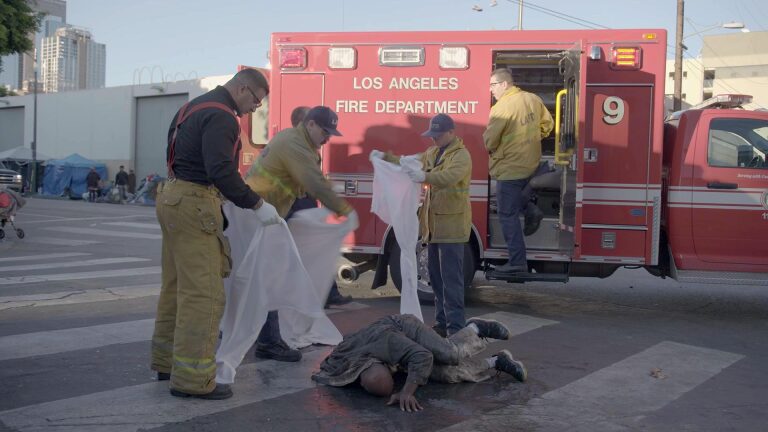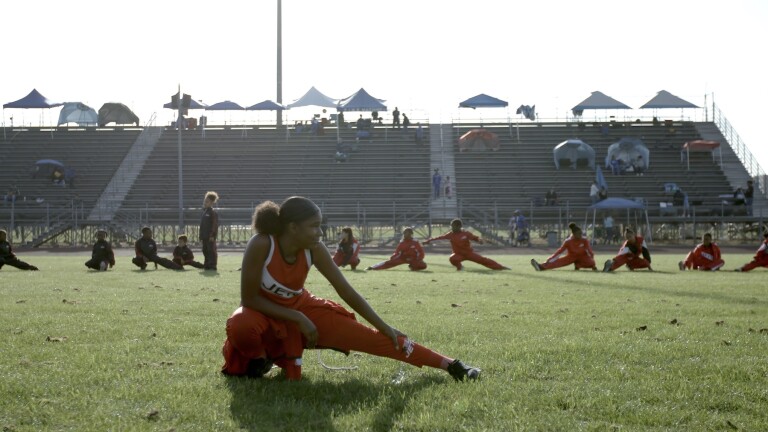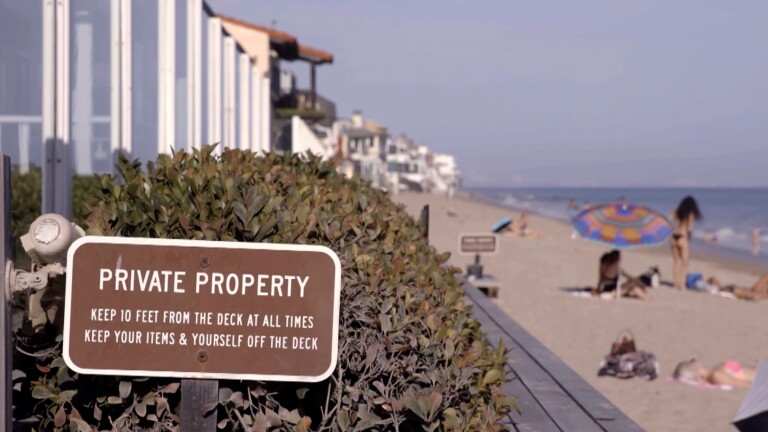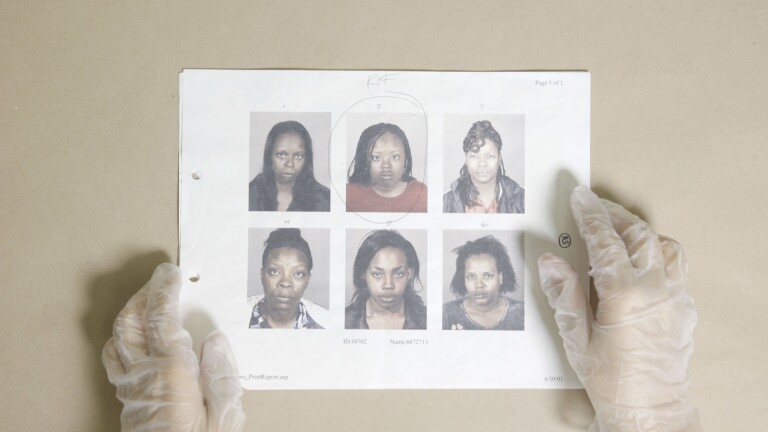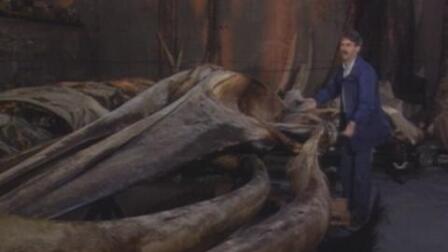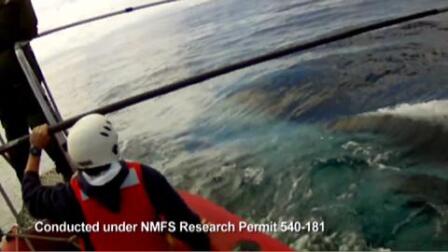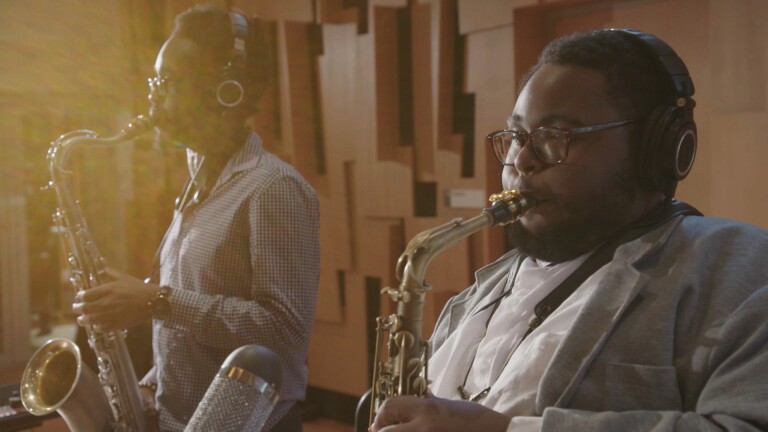
Taking Care of Dad
TRANSCRIPT:
Val Zavala: When it comes to medical services one of the most vulnerable groups is the elderly. Thirteen percent of the population is over 65, and those numbers are growing. Sooner or later each one of us will either need care-taking, or become a care giver. Tonight we begin a year long project on elder care. We're going to meet a man who has a lot to lose if his benefits are cut.
His name is Leamon Wilder. He's 95 and has dementia. Three days a week, his daughter takes him to an adult day care center. But if Medi-Cal funds are cut, he may no longer be able to go. And his daughter — like thousands of others — will have to find another way to take care of Dad. Here's their story, in their own words:
Gunn Leater: Our money is a little funny today, so you'll put some money in church next Sunday, okay?
Mr. Leamon Wilder: Hmm?
Leater: I said money is a little tight today, it's the end of the month, so you'll put some money in church next Sunday, okay?
Leater [to Wilder]: Here put your jacket on, Leamon.
[Leater helps Wilder put on his coat]
Leater: Denee!
Leater: For the past six years, I've been a major caretaker for my father.
Leater [to Wilder]: Ok Daddy, you and Denee get in the car.
Leater: I have a niece that's living here with me now temporary. And so she helps me as best as she can.
My day starts at six, and I don't get to sit down — honestly sit down — until ten or eleven o'clock at night.
Leater [to Wilder]: Alright Daddy, I'll see you later.
Wilder: Alright.
Leater [to Wilder]: Watch your step.
Leater: My father's 95 years old and he, um, is a vet and he suffers from dementia.
Choir singing at church: Hallelujah! Salvation and glory.
Leater: He's like in the second stage of it. It goes in and out. Some days he's very good and some days he's very lost.
Pastor Deveraux [to churchgoers]: We pray for our senior citizens. Some of their rights are being taken away. Some of their privileges are being taken away. Oh God, I just pray that their rights will be protected in the name of Jesus.
Leater: My father goes three times a week to day care. I trust the staff at Graceful Senescence. It's just wonderful, it is. It's much needed.
Nina Nolcox/CEO of Graceful Senescence Adult Day Health Care, Inc.: We provide nurses, social workers, physical therapy, occupational therapy, speech therapy, registered dietician, and psych services, and get them connected to everything inside of the community to keep the caregiver going or to keep them as independent as possible.
Wilder: I love the day care because they keep me in action and going and coming. That place, every day of your life they treat you like you're a human being.
Leater: It's a blessing because he gets to get out. He gets to get out and get around people his own age. And he enjoys himself there. He has friends there. Because all my father's relatives and friends are dead. You know, so he has no one else to socialize with.
Nolcox: Most of our seniors are impoverished. They qualify for Medi-Cal. And so Medi-Cal means that you have to be at the poverty level. So approximately 75% of our participants qualify for Medi-Cal program. After the elimination of Adult Day Health Care, we expect that only five percent of the population would be able to continue services.
I think that most of the people that will not be able to attend adult day health care centers will face, ultimately they will face some type of institutionalization.
The cost differential for adult day health care in a skilled nursing facility is approximately five times as much.
With this transition with Gunn and her dad, we will discuss the alternatives that are available in the community.
Theodore Brown/Program Director, Graceful Senescence [to Leater and Wilder]: Not sure if you got the letter or not. I think they sent it out a couple of times. And I'll just read it to you, so you really get a full grasp of what's going on.
So it says: Notice of Elimination of ADHC Medi-Cal Benefit. And it says: Dear Medi-Cal Beneficiary, there is a change in state law. Medi-Cal will no longer pay for adult day health care beginning December 1st, 2011.
We're gonna sit down and just kind of go over what some options would be.
He could still come private pay, that's an option. Is that something that you can even do, for him to come private pay to the Center? Meaning you would be on a daily —
Leater [to Brown]: Not like he usually comes. I could see us doing it twice a month maybe.
Brown: Twice a month?
Leater [to Brown]: Yeah. Versus every week.
Deshawn Stewart/RN, Graceful Senescence [to Leater and Wilder]: So specifically with Mr. Wilder he has several diagnoses, first being he does have dementia. Also, he has hypertension, which is pretty much under control. But, there are things that can happen that we need to monitor. And diabetes as well. You know, that's, you know, a major chronic condition.
Really, honestly there's not a place that's gonna monitor all those things besides him being institutionalized in a hospital or in a skilled nursing facility.
Leater [to Wilder]: No, I'm fine. It is. It's okay, okay. It's okay.
Leater: I mean I knew this was happening but it's like it's hitting me, you know, that what am I gonna do? I'm not really worried about myself. It's him.
I don't know what we'll do. I'm very lost, and I just pray about it. But I'm very angry, and I'm very — I'm more sad than anything about it. I am.
Brown: That's only one interview that we've done as far as discharge plans. You know, I can only imagine what it's gonna look like when we have to do it for, for everybody. So, uh, you know, it's gonna be a tough road. It really is.
Leater [on the phone]: Hi. I'm calling for my father to get some prescriptions filled.
Leater: It's very hurtful, and I'm very angry about it. And I just wish that, you know our State would tend to elderly people better. They don't care.
I feel like, we have billions of dollars to work on the 405 Freeway, the State doesn't care about elderly people.
Val Zavala: There may still be hope for Leaman and others like him. A settlement has now been reached to continue funding for about half the clients. Those most at risk would receive the same medical and social services.

